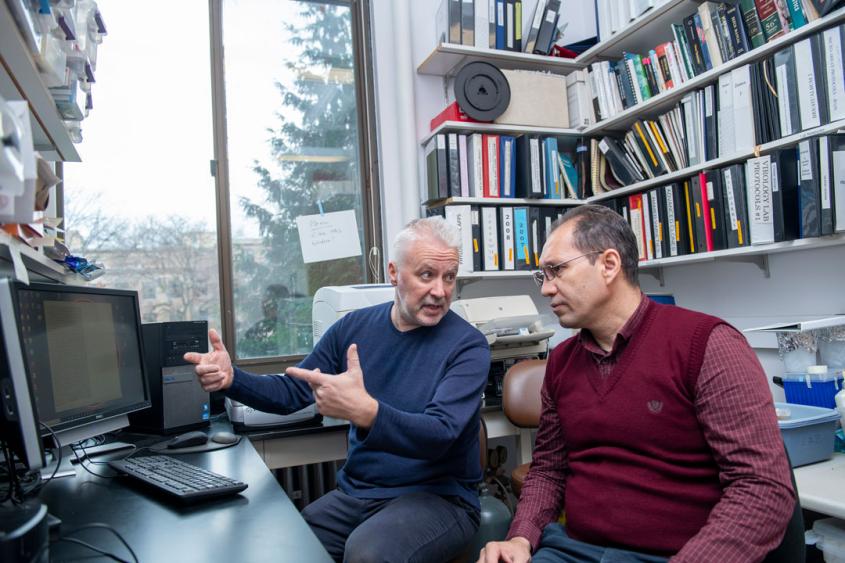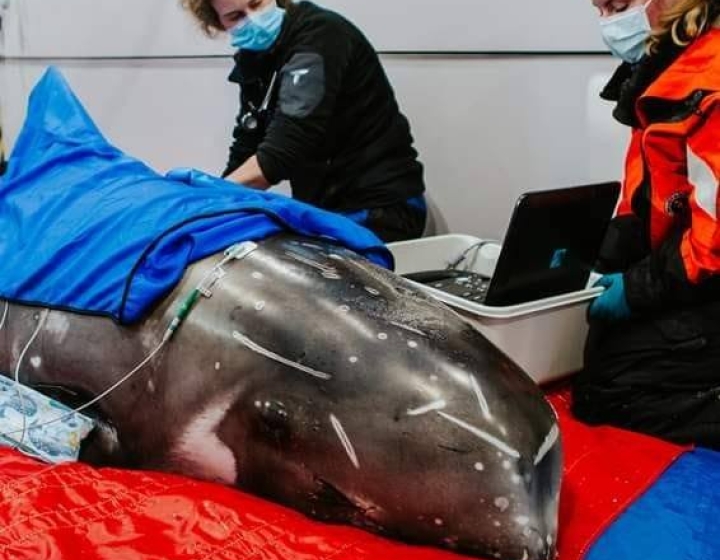Cornell helps advance zoonotic disease tracking and research in Uzbekistan
For the second year in a row, Cornell was chosen to host an international fellow from Uzbekistan to help build the country’s capacity in veterinary medicine and public health.
“The country of Uzbekistan has undergone significant changes in the past three years. The government is making concerted efforts to strengthen national veterinary programs and services,” said Dr. Caroline Yancey, director of international programs at the College of Veterinary Medicine (CVM).
The fellowship is part of the U.S. Department of Defense’s Defense Threat Reduction Agency Cooperative Biological Engagement Program. It sponsors scientists from partner countries for fellowships at selected academic institutions. Each fellowship is based on the needs and capacities of the partner country, in this case Uzbekistan.
Joining Cornell in the fall of 2019 was Dr. Khabibulo Khamdamov, head of the Department of Animal Health of the Uzbekistan State Committee for Veterinary and Livestock Development, which is the government agency in charge of veterinary and animal health issues.
“Developing relationships with veterinarians in Uzbekistan and elsewhere opens the door to research collaborations and student opportunities, in addition to supporting animal health, policy and veterinary education in the partner country,” said Yancey.

Each year, the focus of the five-week program shifts. For Cornell in 2019, it was transboundary animal disease preparedness and response planning. This includes a spotlight on infectious diseases, including many that are zoonotic. Zoonotic diseases, like rabies, SARS and brucellosis, are contagious diseases that spread between animals and humans. Humans can contract zoonotic diseases through direct contact with infected animals, by consuming contaminated food or water, through inhalation or via pests and other vectors. “These diseases do not follow geographic boundaries, so strengthening veterinary care in one country can impact animal and human health regionally and globally,” said Yancey.
A coordinated effort across the university, the fellowship encompassed a host of activities in five weeks, including work in six laboratories and services at the Animal Health Diagnostic Center, the Teaching Dairy Barn, with faculty of the Masters of Public Health Program as well as intensive training in laboratory diagnostics with Dr. Jeremy Thompson in the College of Agriculture and Life Sciences.
CVM was first tapped for the fellowship in 2018, when it hosted two Uzbekistani veterinary scientists. Said Yancey, “It is an exciting time to be involved with veterinarians in Uzbekistan and support their efforts.”
By Melanie Greaver Cordova





